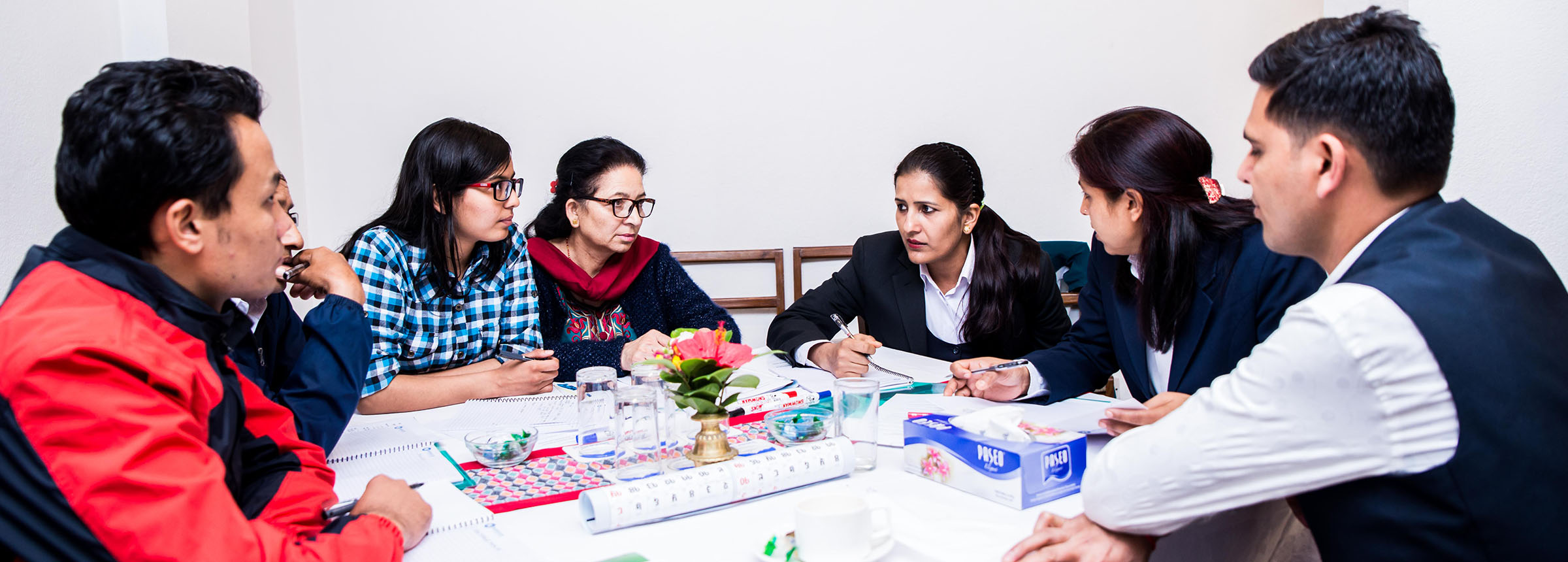
Country Overview : CLEAR II GLP
Winrock International, along with partners Lawyers Without Borders and Verité, collaborates with local stakeholders to implement CLEAR II in Nepal, Burkina Faso, Liberia, Belize, Panama, and Jamaica.
Nepal

To support the Government of Nepal in meeting its child labor reduction commitments, CLEAR II works with the Ministry of Labor, Employment and Social Security (MoLESS), the Attorney General’s Office and municipal governments as well as civil society stakeholders and international organizations to implement activities. Key activities include:
- Improved labor inspection process with the development of a curriculum and the training of trainers from the labor inspectorate to implement the curriculum.
- Child Labor Monitoring System (CLMS) developed through an assessment of the government’s efforts to track child labor and established in Panauti Municipality after consultations with local government officials.
- National Master Plan to eliminate child labor developed and endorsed with technical assistance from CLEAR II.
- Coordination across enforcement agencies through coordination plans developed by stakeholders who identify and prosecute child labor cases.
Burkina Faso
To support Burkina Faso’s efforts to eradicate child labor, CLEAR II works with the Ministry of Public Service, Labor, and Social Security (MFPTSS), the MFPTSS Directorate to Combat Child Labor and its Worst Forms (DLTE), legislative actors, and other key stakeholders to implement activities that will aid the governments ongoing efforts. These activities also contribute to the fulfillment of the following objectives:
- Child Labor Monitoring System (CLMS) developed through an assessment of current child labor tracking efforts, development of guidelines, and a collaborative workshop on the CLMS plan.
- Integration of child labor concerns into the inspection process through a curriculum on conducting child labor inspections and the training of lead Ministry of Labor trainers, who will train labor inspectors in key inspection techniques.
- Coordination across enforcement agencies through the establishment of a national steering committee on child labor and development of a stakeholder coordination plan.
Liberia

To support the Government of Liberia in meeting its child labor reduction commitments, CLEAR II works with the Ministry of Labor’s National Commission on Child Labor (NACOMAL) as well as civil society stakeholders and international organizations to implement activities. Key activities under CLEAR II include:
- Coordination across enforcement agencies through the collaborative development of a National Action Plan implementation strategy and strengthening the National Steering Committee on child labor.
- Legislative Reform Committee (LRC) established to review and analyze child labor laws, make recommendations for reform, and support advocacy to the Liberian legislature for the validation of policy. (Link to success story)
- Improved child labor monitoring through the mainstreaming of a child labor monitoring system and the training of labor inspectors in effective child labor identification techniques.
Belize
Building on Belize’s ongoing success in preventing child labor, CLEAR II works with the Ministry of Labor, Local Government and Rural Development (MLLGRD) and other key stakeholders to implement activities that will support the government in the fulfillment of the following objectives:
- Child labor legislation in compliance with international labor standards through the creation of a Legal Reform Committee, dissemination of awareness materials to civil society organizations, and consultations for legislative validation.
- Strengthening Labor Inspectorate by developing a curriculum that addresses gaps in the existing system and training labor inspectors in effective child labor identification techniques.
Panama
The Government of Panama has demonstrated commitment to closing gaps in child labor prevention and enforcement. This commitment includes incorporating child labor issues into the national strategy and the work of local governments and civils society organizations. The country also pledged to implement mechanisms for monitoring the results of these actions.
To support Panama’s efforts to eradicate child labor, CLEAR II works with Panama’s Ministry of Labor and Workforce Development (MITRADEL), the Committee for the Eradication of Child Labor and the Protection of Young Workers (CETIPPAT), civil society stakeholders, and private sector representatives. In collaboration with these stakeholders, CLEAR II in Panama is conducting these key activities:
- Collaboration between public and private sector enhanced through a pilot project to reduce child labor in coffee supply chains, training of Ministry of Labor and coffee stakeholders in their roles to address child labor, and the mapping of an enforcement coordination plan.
- Advancement of social programs related to child labor with training for line ministry representatives, workshops on youth employment and policy, and an assessment of Panama’s national committee on child labor and child protection.
- Improved labor inspection process with the development of a tailored curriculum and the training of trainers from the labor inspectorate to implement the curriculum.
Jamaica
CLEAR II works with the Ministry of Labour and Social Services (MLSS), the Child Protection and Families Services Agency (CPFSA), and other local stakeholders to implement activities that will support the Government of Jamaica’s priorities in addressing child labor, including the following objectives:
- Strengthening of prosecution of child labor cases through training of prosecutors and technical assistance to institutionalize lessons from training.
- Coordination across enforcement agencies with the implementation of a National Action Plan on child labor and the establishment and support of a child labor coordinating body.
Funding is provided by the United States Department of Labor under cooperative agreement number IL‐26260-14-75-K. Ninety-six percent of total costs of the project are financed with Federal funds, for a total of 7,595,000 dollars. This material does not necessarily reflect the views or policies of the United States Department of Labor, nor does the mention of trade names, commercial products, or organizations imply endorsement by the United States Government.
